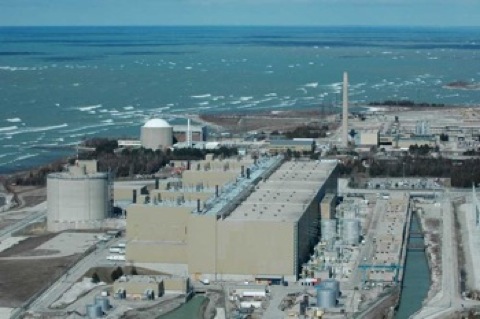"Cancelling the Yucca Mountain repository will throw the entire nuclear waste management program into doubt"
15 Jun, 2009 09:33 pm
Following the Obama administration's decision to end the planning for Yucca Mountain, Nev., as the final repository for high-level radioactive material from all of the nation's nuclear power plants, a panel of nuclear power experts met in May at MIT to discuss how to address nuclear waste recycling or disposal, which many analysts consider the biggest obstacle to building a new generation of nuclear power plants across America. Dr. Matthew Bunn, who took part in the debate, answers Scitizen's questions.
 |
No, I think that was a mistake. Yucca Mountain, if properly designed and operated, could provide a safe place for permament disposal of nuclear waste. Cancelling it will throw the entire nuclear waste management program into doubt, and it is likely to be decades before the United States can settle on another site.
In your testimony, you declared that using today's reprocessing technologies presents greater risks for nuclear proliferation and terrorism. Do you include new reprocessing technologies that are being developed to be deployed in conjunction with fast neutron reactors so that they end up as short-lived fission products?
Those are not today’s technologies. None of them will be ready for commercial deployment for something like 20 years, if not more. Moreover, I have not yet seen a convincing end-to-end systems analysis that would indicate that these technologies, judged overall (including cost, waste management, safety, security against terrorism, proliferation risks, public acceptance, and use of resources) are superior to the once-through approaches that are likely to be available several decades hence.
What are your recommendations regarding America's next generation of nuclear power plants?
For better or for worse, the next generation of nuclear power plants in the United States will be the designs already on offer from the major reactor vendors. Whether they will be built in any substantial numbers will depend in substantial part on whether they end up being economically competitive with other low-carbon alternatives. The costs of nuclear power plants have skyrocketed in recent years, but the costs of coal and gas plants have risen substantially as well. The costs of sources such as wind and solar depends in part on what allowance is made for their intermittent nature. The outcome of the competition is not yet clear. I believe the U.S. government should move forward with a carefully structured program of loan guarantees for the first few nuclear power plants —and with similar guarantees for other new low-carbon energy sources— but should structure the effort with the explicit goal of getting to a situation after the first few plants where they no longer need government support.
Interview by Clementine Fullias
Matthew Bunn is an Associate Professor at Harvard University’s John F. Kennedy School of Government. His research interests include nuclear theft and terrorism; nuclear proliferation and measures to control it; and the future of nuclear energy and its fuel cycle.
-
12/12/12
“Peak Oil” is Nonsense… Because There’s Enough Gas to Last 250 Years.
-
05/09/12
Threat of Population Surge to "10 Billion" Espoused in London Theatre.
-
05/09/12
Current Commentary: Energy from Nuclear Fusion – Realities, Prospects and Fantasies?
-
04/05/12
The Oil Industry's Deceitful Promise of American Energy Independence
-
14/02/12
Shaky Foundations for Offshore Wind Farms







One of the problems with thinking about nuclear power is that most people have no real world experience to go on - just academic papers, propaganda from both sides, and really bad TV movies. But a longtime insider's account of the US nuclear industry, a novel called "Rad Decision" is available free online at RadDecision.blogspot.com . No advertisting, no sponsors, no $$ for the author - just the real world of nuclear, good and bad.
"I'd like to see Rad Decision widely read." - STEWART BRAND,
author of "Environmental Heresies" in MIT Technology Review and founder of "The Whole Earth Catalog".
No commercial fuel would have moved to Yucca for at least another 10-20 years at best even if Yucca received its license in 2018 as proposed because of those technical issues as well as the regulatory issues. Every governor of the states proposed to be used as a travel route would actively work to stop the trains carrying the nuclear material whether it was from federal sources or commercial sources.
Now with Yucca stopped maybe we can finally work on real solutions instead of constant mind-numbing, non-stop tax dollar draining ?research and analysis? on a once through approach to storing our nuclear material inventory. The fuel is safe in on-site storage for many decades so we have time to put together a true technical solution that addresses the political and non-proliferation issues as well.
We have Gen IV technology that was designed, built and tested but was shut down in the mid-90's. It is ready to go to full scale prototype testing. GE just presented their plan to the House Science Committee based on the PRISM plan as has been discussed for the past several years by Dr. Eric Loewen.
A real question to Dr. Bunn would have been worded something like why does he not feel the PRISM plan is workable. Not the open-ended question about new reprocessing technologies which did not define what constitutes ?new? reprocessing technology. All I have seen are new plans using variants of the same reprocessing technology that has been used for years.
Dr. Bunn and his group focus on nonproliferation issues not power generation or grid management issues. We need that nonproliferation knowledge and expertise but the proliferation issues of nuclear material is one factor in many to consider on how we store and recycle our nuclear material inventory while generating reliable 24/7 power. Also we will be left behind technologically from the rest of the world if we continue to pursue a once through mindset while the rest of the world pursues reprocessing/recycling technologies which could then ultimately affect our long term national security.